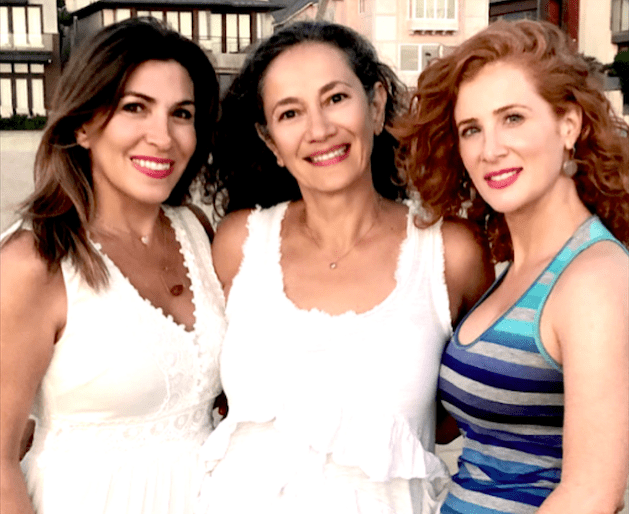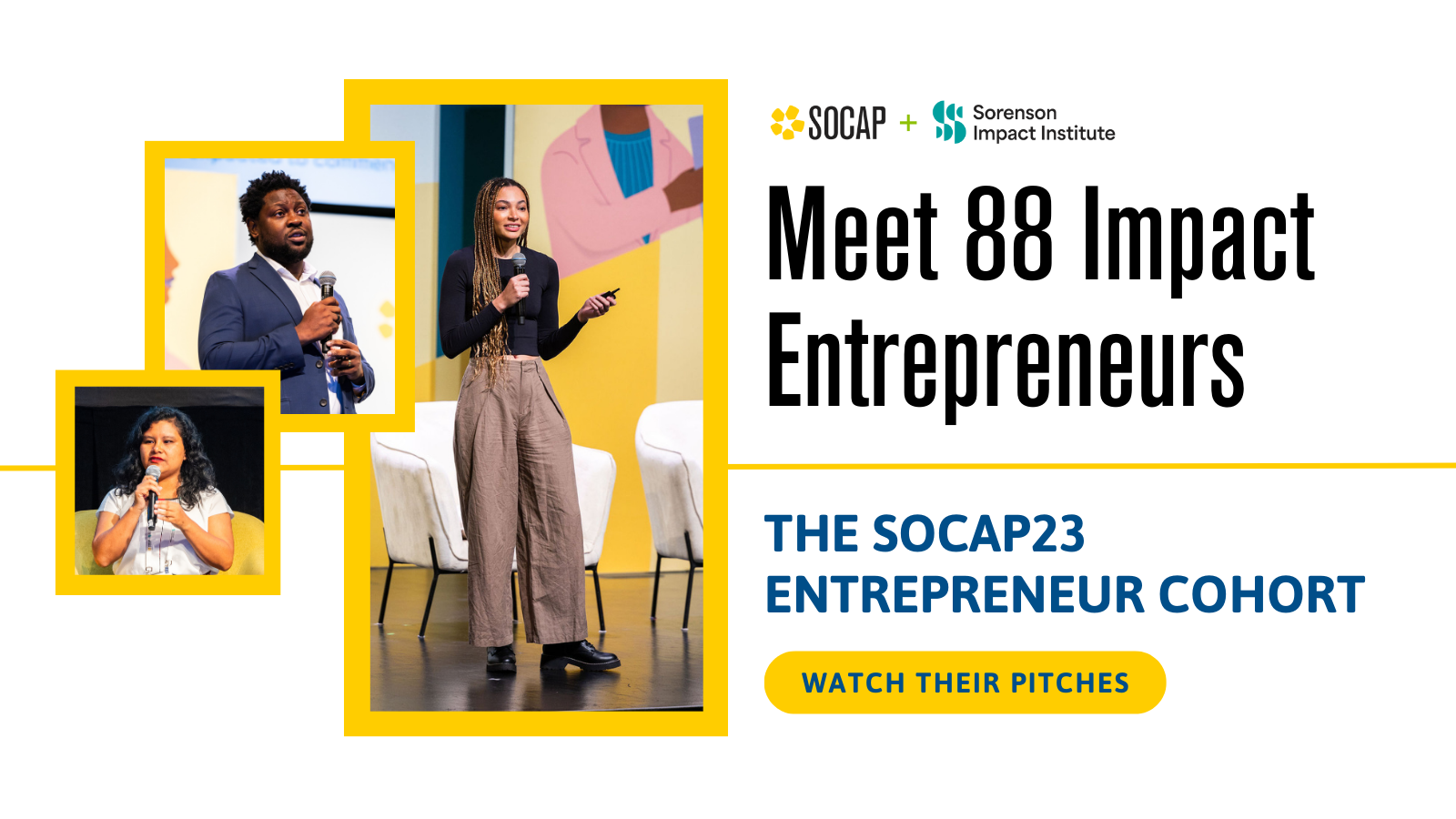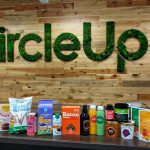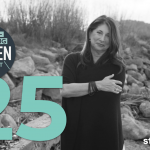“Wisdom demands a new orientation of science and technology towards the organic, the gentle, the non-violent, the elegant and beautiful.”
E. F. Schumacher, Small is Beautiful: A Study of Economics as if People Mattered
I opened this series discussing how the movement for a sustainable culture requires intersectionality. If we want Climate Justice, Racial Justice, Economic Justice, and Gender Justice to move forward, we have to start looking at the ways they intersect and create businesses that address all of them. There’s a second, deeper intersectionality that is needed as well. Our movement has to include businesses of every size.
My deep soul love of small and local business is well known to anyone who knows me and anyone who reads what I write. I have declared time and time again that small business has the power to save the world. I have also argued that if the Conscious Capitalism and B Corp movements don’t start supporting small and local businesses, the movement is destined to fail.
Of the many things COVID is highlighting, the plight of small business owners is one of the most intense. In early May, The Atlantic predicted that many small businesses will never reopen and that will change the landscape of business in the United States completely. Around the same time, a study from Harvard Business School, Harvard University, and the University of Chicago predicted that more than 100,000 small businesses had already permanently closed. That was two months ago. A briefing from McKinsey, on June 25th, predicted that between 1.4 million and 2.1 million US small businesses could close permanently as a result of the first four months of the pandemic, with retail, hospitality, and service sectors showing signs of being hit the hardest.
In the small beach town where I live, our primary industry is hospitality. When bars, restaurants, and most retail were required to close in mid-March, most of the people I know were out of work. Small businesses are notoriously cash strapped, which makes it hard to pay staff when they are laid off. Unemployment took weeks to get processed – with at least one person I know going back to work before her first unemployment check came. Many of us were never even approved. And there has been no shortage of press about how the money set aside by the government for small businesses was used up quickly – by some not-so-small businesses.
Although Florida reopened on June 1st for these sectors, the news was bittersweet. People were ready to go back to work; ready to make money again, but that meant they were putting themselves at risk, as well as their customers. Just two weeks ago, COVID swept through the bars and restaurants, after someone who was waiting for test results had a night out on the town, and the majority of our local restaurants closed again – either because an employee tested positive or out of safety and to clean. This week the governor rolled back the June 1st order and all non-food serving establishments are closed once again (except for takeout).
Employees and business owners who had barely had time to even think about catching up are now adding the cost of getting COVID tests to their struggling financial pictures.
As we all know, in the first days of the outbreak and mandatory distancing going into effect, countless companies, foundations, non-profits, and individuals stepped up to offer grants and loans to small businesses and startups. However, over and over the requirements were at least 2 people on payroll, most of the time there was a certain income level required, and the money always ran out before you even knew to apply.
The ripple effect from the closures of small businesses cannot be overstated.
Think of a retail shop owner. Not only are her staff not getting paid, which affects their lives, but now they can’t pay their bills or support the local businesses they normally do. Additionally, she can’t pay her wholesale bills or order more inventory from her suppliers – many times small or solo makers themselves. Since she’s not at her store, she doesn’t need to grab a coffee or sandwich from the place down the street. She also probably doesn’t need to pay her cleaning company. And on and on and on. For each business that is closed right now and each business that never opens back up, there are far-reaching consequences for our entire economy.
And it’s not just local brick and mortars that are suffering. Many digital and service-based entrepreneurs with small businesses as clients are experiencing the same type of realities. I know a number of CPAs who do the bulk of their business from January 15th – April 15th and work other jobs or have side businesses the rest of the year. The extension of the tax deadline means they are working through the June and July tax deadlines, but likely not doing more returns than any other year: the same amount of money spread over more months. And they are unable to work other gigs or put time into their other businesses.
In contrast, Jeff Bezos’ income went up by $24B between mid-March and mid-April. Nope, that is not a typo. The Amazon CEO and World’s Richest Person saw an increase of $24 billion dollars while small businesses across the country, and around the world, struggled to make ends meet, laid-off employees, and were denied much of the aid available to them.
This tragic reality is not Jeff Bezos’s fault. It is ours. We have chosen, as a society, the convenience of Amazon over supporting small independent businesses. We have to stop doing that. And the biggest shift is going to come, not just from supporting small and local businesses, both brick and mortar and e-commerce, but from supporting the ones who are practicing intersectional sustainability, not as a PR move, but as a core part of who they are as a business.
This will take a conscious effort on our part. We need to seek out these businesses and support them.
As a perfect case study, I present to you Mint + Laurel and the three co-founders: Rama Chakaki, Kinda Hibrawi, and Mai Barazi. Mint + Laurel is an e-commerce social enterprise, based in Los Angeles, that sells artisan-made soaps, towels, and blankets created by artisans in Syria and Lebanon, using techniques passed down from generation to generation.
These three founders had similar childhood experiences, in Syria, where everything they used was handmade and/or organic, things were used and reused over and over, and then recycled.
We watched our grandparents use large crates that other products came in to plant pots for their gardens. Twine was used to wrap gifts and soaps came in organic paper that was then used to clean windows.
Prior to the war, small business in Syria was sustainable, thriving even. Shopping areas, called souks, were full of the aromas, delicacies, and fabric of life. From soaps made in traditional ways to soft organic towels and blankets, everything was crafted by artisans and the trade passed down from generation to generation. Most of the food was local and fresh with a short shelf-life. And, even more so, the merchants and artisans were a community. When a merchant had made his needed income for the day, they would close up their shop so other merchants could make the money they needed to.
And then the war came. As we know, it brought with it all the devastation that war brings as well as mass consumerism and waste. Feeling called to intervene on behalf of the artisans they treasured, Rama, Kinda, and Mai created Mint + Laurel to offer their products on a global market.
This is not a standard wholesale/retail relationship, though. Mint + Laurel partners with the artisans to curate beautiful collections that reflect the cultures where they are made while maintaining a contemporary style. Furthering the partnership, they also create beautiful videos that showcase the artistry of the makers.
From day 1, they were intentional about making sure every part of their process and company is sustainable. They have constant conversations about sustainability in everything they are doing, including the consultants and interns they hire, the suppliers who package their products in eco-friendly minimalist packaging, and their customers and followers. Their packaging, like that used by their grandparents, can be repurposed in a variety of ways. And it is strikingly beautiful. Remember that ripple effect I mentioned earlier? The good news is that it works both ways. Mint + Laurel is having a ripple effect because sustainability is built into the DNA of the company.
The artisans they partner with are also paid a living wage. Currently, they employ
12 displaced women in Damascus,
10 soap makers in Aleppo,
5 refugee women in Beirut, and
3 men + 4 widowed women in Hama –
statistics they proudly share right on their site. Many of their stories are included on the website, such as Hassen, who has been in the Aleppo laurel soap business for over 25 years.
Named after the town where it was first made, using a centuries-old process, each bar of Aleppo laurel soap takes one year to make. It is loved around the world for its soothing benefits and natural ingredients, including Syria’s green gold, laurel oil.
And, like many other small businesses, they are also giving back to their local communities here in the United States. With the onset of COVID-19, they created two very special Ramadan programs providing hygiene kits to the homeless in L..A. and supporting displaced Syrian families in Chicago. They are also sending care packages to nominated healthcare workers, who are on the front lines treating COVID-19 patients.
And that’s not all. Realizing the complexities that face many of us right now, and particularly our most vulnerable communities they have been donating a portion of their online sales to the Texas Advocacy Project, who supports survivors of domestic assault and to Sabil USA, who delivers over 35,000 pounds of food every weekend. In honor of World Refugee Day, they partnered with BlueFlower to create an exclusive gift box where 100% of the proceeds were donated to Project Turquoise, who provide humanitarian support to displaced communities.
These founders told me that they believe the catalyst needed to shift our culture to one that is sustainable, in all the ways is the acknowledgment that Small is Beautiful.
They want to be known for introducing artisanal, sustainable practices and products from the Middle East and making them common practice in the USA – infusing the energy and experience of the old souks of Damascus and Aleppo, where every alleyway is full of merchants selling products just like theirs. I ordered the BlueFlower box and can attest that they are on the right path. It was full of the aromas, delicacies, and fabric of life: a new life where global citizens purchase these beautiful artisan soaps, towels, and blankets because they are connected to the stories of the artisans who make them and know these products and those stories are worth way more than the convenience they are giving up.
Visit Mint + Laurel today to purchase beautiful products, meet these talented artisans, and be part of the shift towards a more sustainable future for us all.







